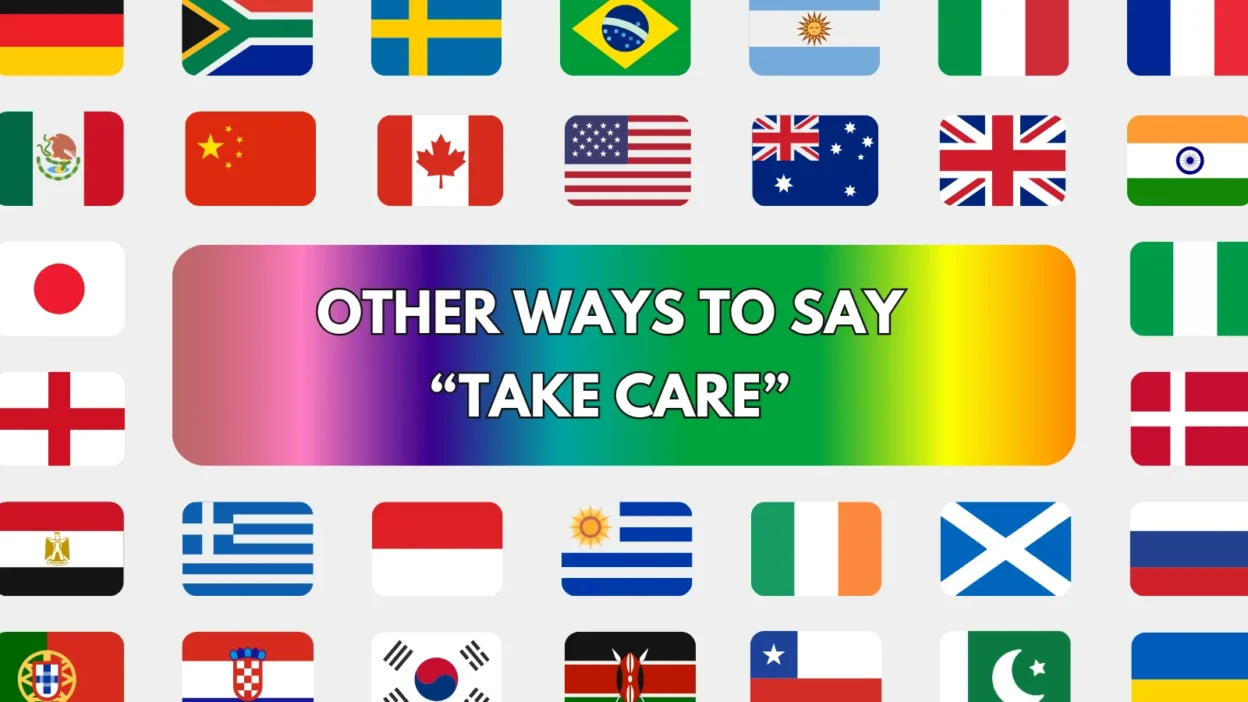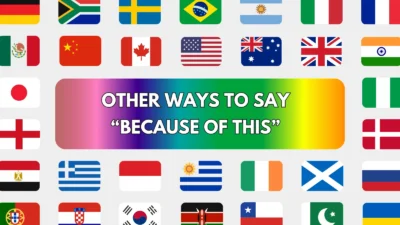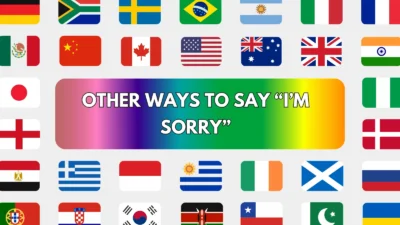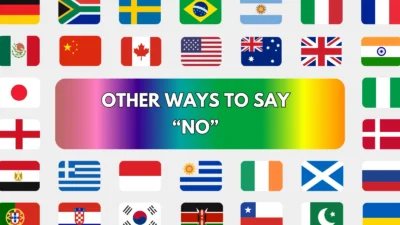The phrase “Take care” is a common and kind way to say goodbye, especially when expressing concern or well-wishes for someone’s well-being. Whether used in messages, calls, or face-to-face, it’s a thoughtful phrase — but repeating it too often can sound repetitive or routine.
That’s why having a variety of ways to say “Take care” helps you show warmth, attention, and sincerity in different situations. Below are 25 meaningful alternatives, with explanations and usage examples to help you sound more personal and genuine.
1. Stay safe
Meaning:
A wish for someone to remain unharmed or out of danger.
Detailed Explanation:
Often used during uncertain times, travel, or to show protective concern.
Scenario Example:
Text me when you land. Stay safe!
Best Use:
Travel farewells, emergencies, caring messages.
Tone:
Protective, caring.
2. Be well
Meaning:
A wish for ongoing health and happiness.
Detailed Explanation:
“Be well” is gentle and somewhat formal, often used in emails or supportive conversations.
Scenario Example:
It was lovely catching up. Be well!
Best Use:
Letters, emails, supportive goodbyes.
Tone:
Polite, warm.
3. All the best
Meaning:
A general wish for someone’s success and well-being.
Detailed Explanation:
This is a friendly, professional sign-off often used in written communication.
Scenario Example:
Thanks for your help today. All the best!
Best Use:
Emails, letters, networking.
Tone:
Respectful, supportive.
4. Take it easy
Meaning:
Encourages someone to relax or not overwork themselves.
Detailed Explanation:
Casual and friendly, this phrase works well in informal chats or goodbyes.
Scenario Example:
Long week, huh? Take it easy this weekend.
Best Use:
Casual conversations, friendly messages.
Tone:
Chill, laid-back.
5. Stay well
Meaning:
A wish for someone’s continued health and happiness.
Detailed Explanation:
Similar to “be well,” but slightly more modern or concise.
Scenario Example:
Let me know how it goes. Stay well!
Best Use:
Emails, health-related check-ins.
Tone:
Caring, sincere.
6. Keep in touch
Meaning:
A request or encouragement to stay connected.
Detailed Explanation:
Often used at the end of conversations with someone you may not see for a while.
Scenario Example:
It was great working with you — keep in touch!
Best Use:
Goodbyes after meetings, job changes.
Tone:
Friendly, open.
7. Peace out
Meaning:
A casual way to say goodbye, often light or humorous.
Detailed Explanation:
Informal and fun, often used in texting or among friends.
Scenario Example:
Alright, I’m out. Peace out!
Best Use:
Friends, texts, casual chats.
Tone:
Playful, relaxed.
8. Godspeed
Meaning:
A formal or respectful wish for success and safety, especially in journeys.
Detailed Explanation:
This term is often used in dramatic or serious farewells.
Scenario Example:
You’re off to something big — Godspeed on your journey!
Best Use:
Ceremonial goodbyes, emotional support.
Tone:
Formal, respectful.
9. Have a good one
Meaning:
A general wish for someone to enjoy the rest of their day or week.
Detailed Explanation:
This is informal but cheerful — great for ending small talk.
Scenario Example:
Alright, see you later! Have a good one.
Best Use:
Everyday conversations, quick goodbyes.
Tone:
Casual, friendly.
10. Until next time
Meaning:
A pleasant way to express that you look forward to seeing someone again.
Detailed Explanation:
Adds a hopeful and slightly poetic tone to your goodbye.
Scenario Example:
Let’s catch up again soon. Until next time!
Best Use:
Emails, meetups, letters.
Tone:
Warm, positive.
11. Catch you later
Meaning:
An informal goodbye implying you’ll talk again soon.
Detailed Explanation:
Laid-back and social, this is perfect for peers and friends.
Scenario Example:
Heading out! Catch you later!
Best Use:
Friend groups, casual chats.
Tone:
Easygoing, informal.
12. Farewell
Meaning:
A formal goodbye that conveys well-wishes.
Detailed Explanation:
A classic term that feels polite and slightly serious.
Scenario Example:
Farewell, and may your future be bright.
Best Use:
Ceremonies, letters, formal writing.
Tone:
Respectful, traditional.
13. See you around
Meaning:
A casual way of saying you expect to meet again.
Detailed Explanation:
Great for ending a conversation with someone you may casually cross paths with.
Scenario Example:
I’m off now — see you around!
Best Use:
Friends, coworkers, casual settings.
Tone:
Relaxed, friendly.
14. Don’t be a stranger
Meaning:
Encouraging someone to stay in touch.
Detailed Explanation:
Playful and warm, it lightly urges the person not to disappear from your life.
Scenario Example:
It was great seeing you again — don’t be a stranger!
Best Use:
Friendly farewells, catch-ups.
Tone:
Casual, affectionate.
15. Safe travels
Meaning:
A wish for someone’s journey to go well and safely.
Detailed Explanation:
Often used when someone is leaving for a trip.
Scenario Example:
Bon voyage! Safe travels and keep me posted.
Best Use:
Travel goodbyes, airport farewells.
Tone:
Caring, supportive.
16. Be careful
Meaning:
A protective and concerned parting phrase.
Detailed Explanation:
Used when someone is heading out into unknown or risky situations.
Scenario Example:
Be careful driving in this weather, okay?
Best Use:
Family, close friends.
Tone:
Worried, protective.
17. Stay strong
Meaning:
A supportive message encouraging resilience.
Detailed Explanation:
Often used during difficult times or emotional conversations.
Scenario Example:
You’ve got this. Stay strong, and don’t hesitate to call me.
Best Use:
Supportive messages, serious moments.
Tone:
Empowering, caring.
18. Enjoy your day
Meaning:
A cheerful wish for the person to have a good day.
Detailed Explanation:
Uplifting and positive, works for many polite sign-offs.
Scenario Example:
Thanks for your help! Enjoy your day!
Best Use:
Emails, customer service, everyday goodbyes.
Tone:
Pleasant, friendly.
19. Bless you
Meaning:
A spiritual or kind-hearted wish of protection and peace.
Detailed Explanation:
Often used in religious contexts or to show kindness.
Scenario Example:
You’ve been through a lot. Bless you and your family.
Best Use:
Spiritual notes, emotional conversations.
Tone:
Heartfelt, sincere.
20. Cheers
Meaning:
A casual, friendly sign-off used in British and Australian English.
Detailed Explanation:
It’s a short and versatile word often meaning thanks or goodbye.
Scenario Example:
Alright then, cheers! Speak soon.
Best Use:
Emails, texting, informal communication.
Tone:
Light, positive.
21. Stay blessed
Meaning:
A spiritual way of wishing someone continued positivity and peace.
Detailed Explanation:
Similar to “take care,” but with a more divine or reflective touch.
Scenario Example:
Stay blessed and keep shining.
Best Use:
Faith-based communities, warm farewells.
Tone:
Spiritual, sincere.
22. Keep shining
Meaning:
Encourages someone to stay confident, positive, or radiant.
Detailed Explanation:
Great for uplifting others and reminding them of their worth.
Scenario Example:
You’re doing amazing. Keep shining!
Best Use:
Inspirational messages, support.
Tone:
Empowering, uplifting.
23. Look after yourself
Meaning:
A gentle reminder to prioritize self-care.
Detailed Explanation:
More direct than “take care,” especially helpful during tough times.
Scenario Example:
Please look after yourself and take time to rest.
Best Use:
Concerned or personal messages.
Tone:
Caring, personal.
24. Be kind to yourself
Meaning:
A compassionate reminder to avoid self-criticism or burnout.
Detailed Explanation:
This version emphasizes emotional care.
Scenario Example:
It’s okay to slow down. Be kind to yourself.
Best Use:
Mental health support, friendly chats.
Tone:
Supportive, gentle.
25. Talk soon
Meaning:
A quick and casual way to say goodbye, implying future contact.
Detailed Explanation:
Less about safety, more about continuing the relationship.
Scenario Example:
Gotta go now — talk soon!
Best Use:
Texting, casual messages.
Tone:
Friendly, brief.
Conclusion
“Take care” is always a thoughtful farewell, but these 25 alternatives help you adjust your message depending on who you’re speaking to, how close you are, and what tone you want to set. From protective to playful, formal to friendly — these phrases help you say goodbye in a way that truly fits the moment.

Naz Fatima is an author at Saypadia who specializes in writing clear, relatable, and reader-friendly content about language, expressions, and modern terminology. She enjoys breaking down meanings with real-life context so readers can quickly understand and apply them. Naz’s work reflects a strong commitment to clarity, accuracy, and helping users find quick answers without confusion.




